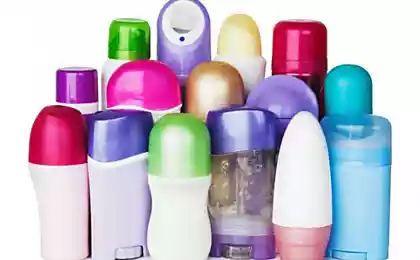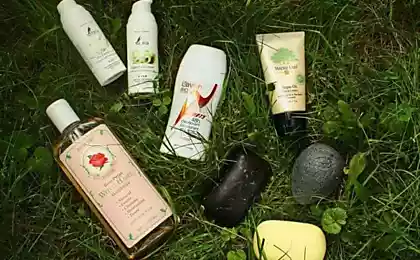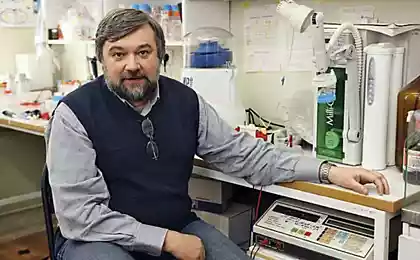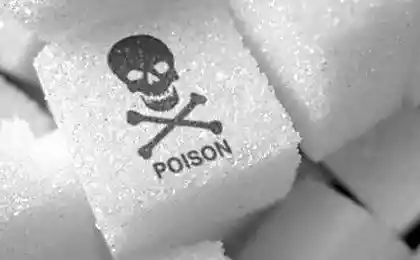167
Modern deodorants can cause cancer and infertility
Everyone sweats. Whether we like it or not, this is how our bodies cool down. Sweat itself is odorless, but the bacteria that multiply rapidly in it are the reason why everyone wants to stop it. Protection products are produced in various variations: aerosols, ball, gel or cream. Each of them has its advantages and disadvantages.
Since deodorants were created, we thought that all the problems associated with unpleasant odors would be solved, but as it turned out, they only increased. Doctors are increasingly accusing antiperspirants and deodorants of provoking various diseases. They emphasize that you can not abuse these funds, so some substances that are part of them can provoke asthma, infertility, cancer and even Alzheimer's disease. Flatates and triclosan are particularly dangerous. Manufacturers mask labels describing the composition of a product, but doctors recommend carefully checking the packaging and labeling before buying.
How is deodorant different from antiperspirant?
Today, there are two ways to get rid of the unpleasant smell of sweat: with the help of deodorants and antiperspirants, which have different mechanisms of action.
Deodorants include disinfecting and deodorizing preservatives. They prevent bacteria from multiplying in a moist environment, absorb odors and leave their scent behind.
The action of antiperspirants is more radical: in addition to antimicrobials, they also contain organic salts of aluminum and zinc, which narrow the ducts of the sweat glands and block their activity for a certain time. Naturally, the effectiveness of antiperspirants is much higher compared to the action of deodorants.
Rules for choosing a deodorant or antipersprirant
1. The best are considered gel products: they perfectly perform their mission and do not leave traces on clothes. White cream sprays and antiperspirants can leave white marks or stains on clothing.
2. Sprays are categorically contraindicated for owners of sensitive skin. The alcohol contained in them in a large volume can provoke irritation, redness and severe itching. For skin of this type, "sparing" means are more suitable: talc or perfumed powder. However, remember that deo-talc is not suitable for dry skin and it is better to give a deodorizing cream.
3. When buying an antiperspirant or deodorant, pay attention to the shelf life of the product. The longer it is, the more preservatives in the product. The amount of preservatives also depends on the form of release. Less of them in sprays, most of them in dry means.
4. When choosing a deodorant, give preference to a product that does not contain aluminum salts. It is this ingredient that increases the risk of breast cancer, destroys estrogen, causing premature aging, and can trigger Alzheimer’s disease.
5. Check the composition for parabens. This ingredient of antipersprirants is also associated with the occurrence of oncology.
Source: estet-portal.com
Since deodorants were created, we thought that all the problems associated with unpleasant odors would be solved, but as it turned out, they only increased. Doctors are increasingly accusing antiperspirants and deodorants of provoking various diseases. They emphasize that you can not abuse these funds, so some substances that are part of them can provoke asthma, infertility, cancer and even Alzheimer's disease. Flatates and triclosan are particularly dangerous. Manufacturers mask labels describing the composition of a product, but doctors recommend carefully checking the packaging and labeling before buying.
How is deodorant different from antiperspirant?
Today, there are two ways to get rid of the unpleasant smell of sweat: with the help of deodorants and antiperspirants, which have different mechanisms of action.
Deodorants include disinfecting and deodorizing preservatives. They prevent bacteria from multiplying in a moist environment, absorb odors and leave their scent behind.
The action of antiperspirants is more radical: in addition to antimicrobials, they also contain organic salts of aluminum and zinc, which narrow the ducts of the sweat glands and block their activity for a certain time. Naturally, the effectiveness of antiperspirants is much higher compared to the action of deodorants.
Rules for choosing a deodorant or antipersprirant
1. The best are considered gel products: they perfectly perform their mission and do not leave traces on clothes. White cream sprays and antiperspirants can leave white marks or stains on clothing.
2. Sprays are categorically contraindicated for owners of sensitive skin. The alcohol contained in them in a large volume can provoke irritation, redness and severe itching. For skin of this type, "sparing" means are more suitable: talc or perfumed powder. However, remember that deo-talc is not suitable for dry skin and it is better to give a deodorizing cream.
3. When buying an antiperspirant or deodorant, pay attention to the shelf life of the product. The longer it is, the more preservatives in the product. The amount of preservatives also depends on the form of release. Less of them in sprays, most of them in dry means.
4. When choosing a deodorant, give preference to a product that does not contain aluminum salts. It is this ingredient that increases the risk of breast cancer, destroys estrogen, causing premature aging, and can trigger Alzheimer’s disease.
5. Check the composition for parabens. This ingredient of antipersprirants is also associated with the occurrence of oncology.
Source: estet-portal.com
Unmanned surface vessel "Aquarius"for the control of water pollution
The most famous bet in the history of mankind























